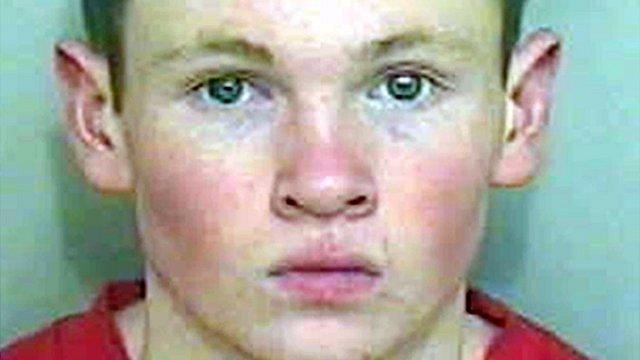Breck Bednar: Mother shares 'lesson' in online grooming
- Published
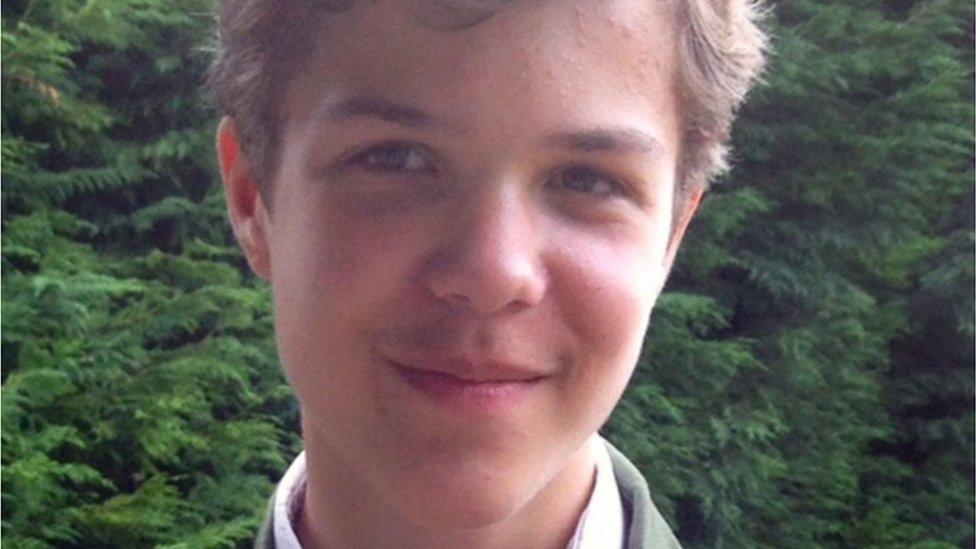
Breck Bednar met his killer online before travelling to meet him
The mother of a boy murdered after he was groomed through video gaming has given her first online safety classes in Northern Ireland.
Breck Bednar, 14, from Surrey, was lured by Lewis Daynes to his flat in Essex in 2014 and stabbed to death.
Breck's mother Lorin LaFave set up the Breck Foundation after his killing to warn young people about online dangers.
On Thursday she visited Victoria College in Belfast to tell her story to pupils and parents.
Daynes murdered Breck after grooming him through their shared interest in online video games.
He had pretended to be a successful internet entrepreneur running a multimillion pound company.
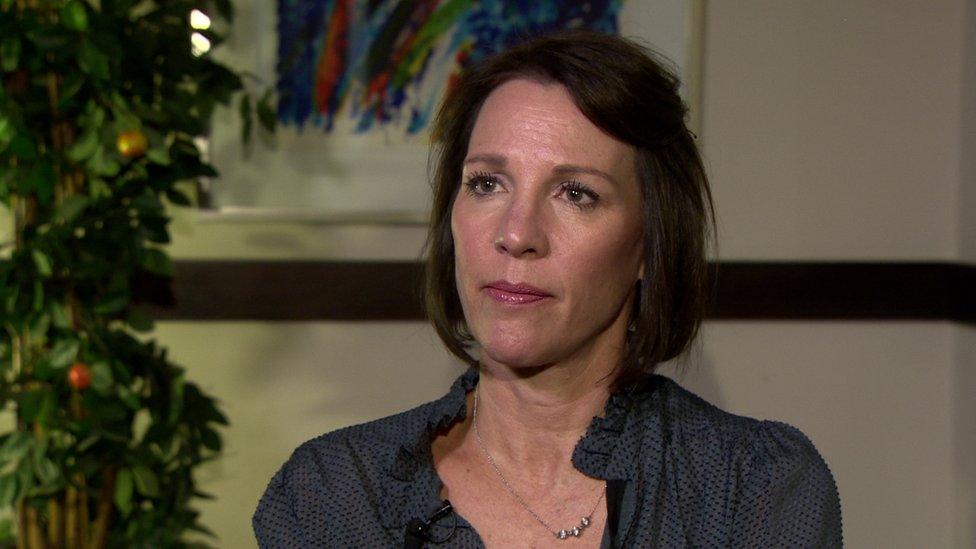
Lorin LaFave set up the Breck Foundation after her son's murder in 2014
Ms LaFave said that Breck was a thoughtful, intelligent boy with a lot of friends who was doing well in school.
"Unfortunately he was tricked and lured to a predator's flat where he was brutally killed," she told BBC News NI.
"There were so many lessons within Breck's story because people didn't recognise what grooming was.
"Nobody thought he was the kind of kid who would fall for something like this.
"So we use Breck's story to try to help young people realise it's not just that we're all paranoid and have all these rules.
"There are people that can be a danger because everyone online is a stranger.
"It doesn't mean they're all dangerous, but it means we can't tell who is who because we only get a snippet of who that person is."
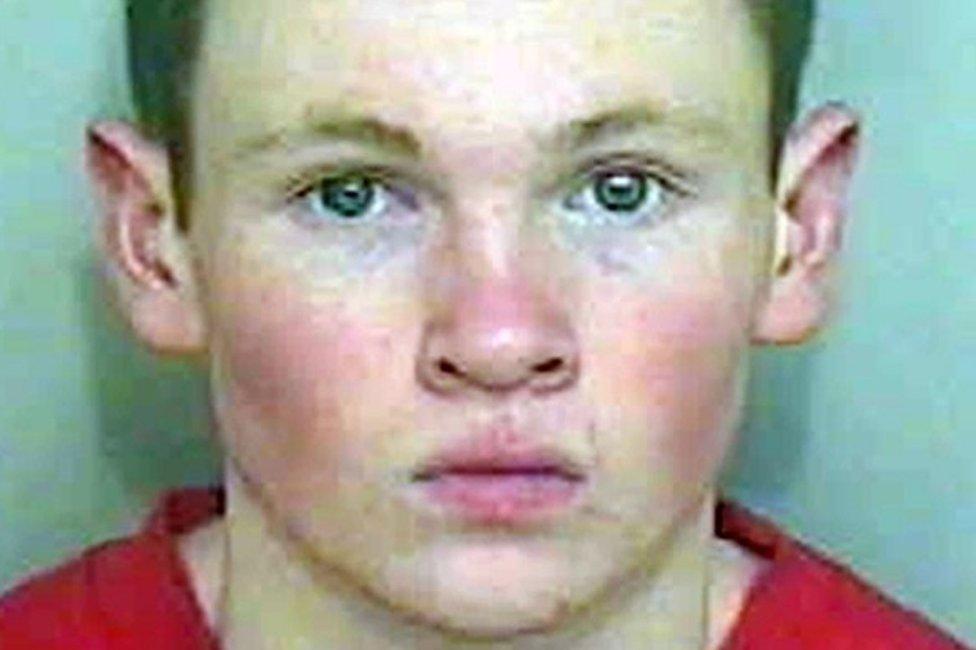
Daynes was sentenced to life with a minimum of 25 years in 2015
In Victoria College, Ms LaFave shared the lessons she had learned about keeping safe online with all pupil year groups.
She also gave presentations to parents and staff.
"We teach young people what a real friendship looks like, because a predator will try to emulate that same friendship," she said.
"For instance, if a gift seems too good to be true maybe it is.
"Lots of children are offered phones, maybe designer kit.
"Breck was given software and games online so I didn't see it come through the door.
"We need to teach young people to question when someone is giving them so many things, and also isolating them from their friends and family, pulling them away from their support systems.
"It's important that friends look out for each other because the child being groomed may not recognise it because it feels good at the beginning."
Awareness
Ms LaFave said her message was not about scaring young people but enabling them to spot online danger signs.
What she had to say got the attention of pupils at Victoria College.
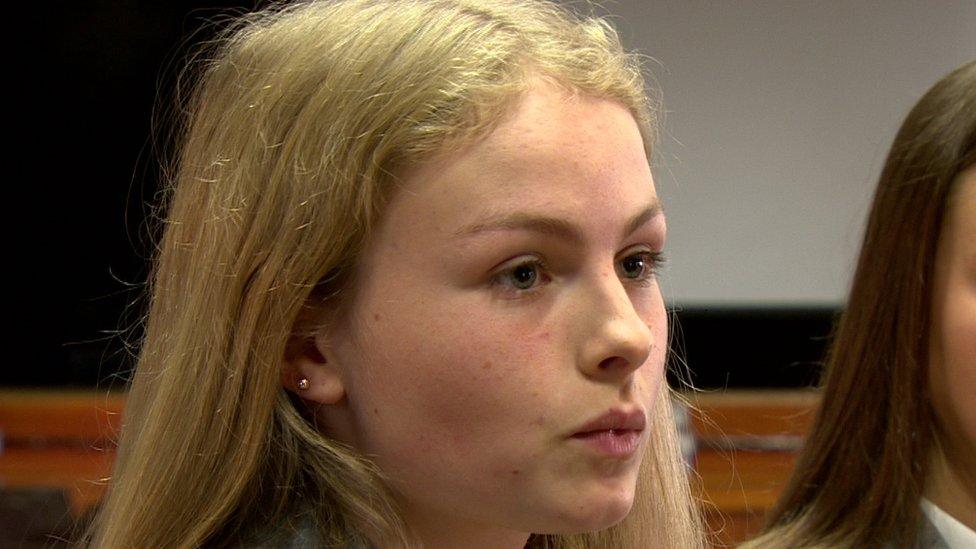
Lucy said it was important for young people to talk about online safety
Lucy, 16, said that what happened to Breck had alerted her to the reality of online grooming.
"You always hear about it but you think are people are just exaggerating," she told BBC News NI.
"But then you hear stories like that and you just think 'right, it actually happens' and it takes your breath away.
"We talk about this quite a lot so we do get a good education on it, but not everyone gets that kind of safety talk in school.
"Not everyone is as fortunate as us."
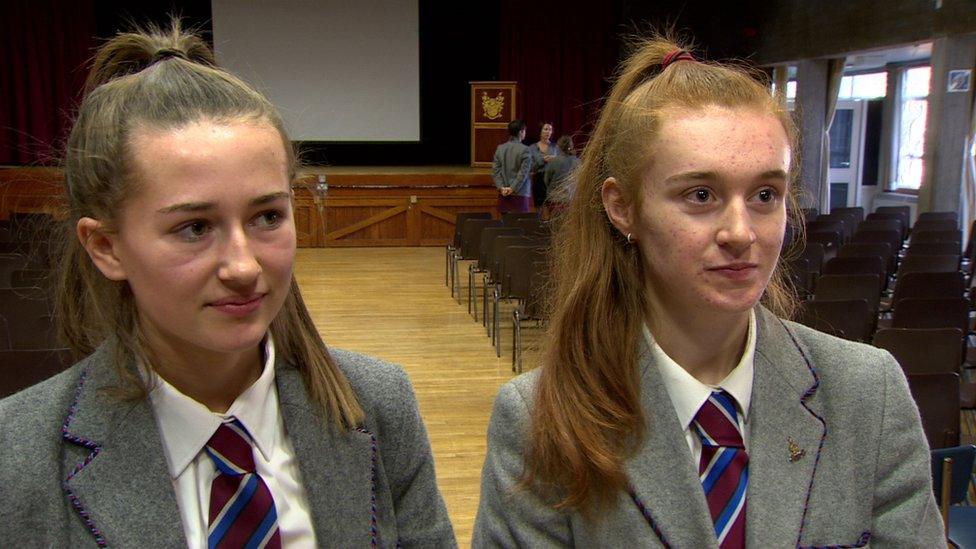
Ellen (left) and Elise also attended the talk
Ellen, who is 15, said that Lorin's talk was very hard-hitting and informative.
"Breck was so innocent to everything that was going on, so it just really showed to always be safe and double check what you're posting online," she said.
Her classmate, 16-year-old Elise, said it had made her think about her social media use.
"You just need to be really careful and know who you're talking to," she said.
"Only really talk to friends that you know, say on Instagram or Snapchat."
As well as speaking out about online safety, Ms LaFave has called for social media companies to improve their account verification processes.
It came after a bogus Instagram account in Breck's name was found by his family earlier this year.
- Published6 September 2019

- Published12 January 2015
